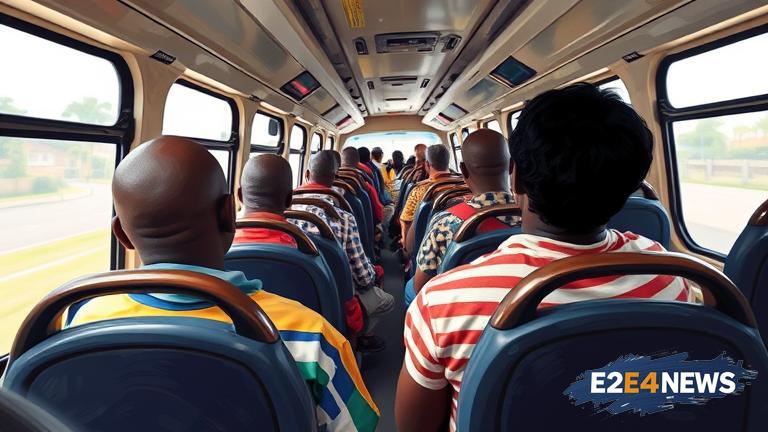The recent increase in fares by the National Transit Authority (NTA) on the Monrovia-Maryland route has sparked widespread outrage among commuters in Liberia. Many have taken to social media to express their frustration and disappointment over the exorbitant prices, which they claim are unbearable and unjustified. According to reports, the NTA has increased fares by over 50% in recent months, citing rising fuel costs and maintenance expenses as the primary reasons. However, commuters argue that the increase is excessive and does not reflect the quality of services provided by the NTA. They claim that the buses are often overcrowded, poorly maintained, and frequently break down, causing inconvenience and discomfort to passengers. Furthermore, commuters point out that the NTA has failed to provide adequate transportation services, resulting in long waiting times and overcrowding at bus stations. The situation has become so dire that many commuters are now seeking alternative modes of transportation, including private cars and motorcycles, which are not only more expensive but also pose significant safety risks. The Liberian government has been criticized for its failure to regulate the NTA and protect the interests of commuters. Many are calling for an immediate reduction in fares and improved services, warning that the current situation is unsustainable and may lead to social unrest. The NTA has defended its decision, citing the need to generate revenue to maintain its fleet and provide better services. However, commuters remain skeptical, arguing that the authority has a history of mismanaging funds and prioritizing profits over people. The controversy has highlighted the need for greater transparency and accountability in the management of public transportation services in Liberia. It has also sparked a broader debate about the role of government in regulating the transportation sector and protecting the rights of commuters. As the situation continues to unfold, it remains to be seen whether the NTA will reverse its decision or implement measures to address the concerns of commuters. In the meantime, commuters will continue to bear the brunt of the fare increase, struggling to make ends meet in a country where the cost of living is already high. The Liberian economy is still recovering from the devastating effects of the Ebola outbreak and the decline in global commodity prices, making it even more challenging for people to afford basic necessities like transportation. The government must take urgent action to address the crisis and ensure that public transportation services are affordable, reliable, and safe for all citizens. This includes investing in the development of a modern and efficient transportation system, regulating the activities of private transport operators, and providing subsidies to support low-income commuters. By doing so, the government can help to reduce poverty and inequality, promote economic growth, and improve the overall quality of life for Liberians. The international community has a critical role to play in supporting Liberia’s efforts to develop its transportation sector and improve the lives of its citizens. This can be achieved through the provision of technical assistance, funding, and expertise to help the government develop a comprehensive transportation strategy and implement reforms. Ultimately, the resolution of the crisis will depend on the ability of the government and other stakeholders to work together to address the root causes of the problem and find sustainable solutions that benefit all Liberians. The fate of commuters on the Monrovia-Maryland route hangs in the balance, and it is imperative that urgent action is taken to prevent further hardship and suffering. The Liberian government must prioritize the needs of its citizens and take bold steps to reform the transportation sector and ensure that public services are accessible, affordable, and reliable for all. As the country continues to navigate the challenges of post-conflict reconstruction and economic development, it is essential that the government remains committed to promoting the welfare and well-being of its people. The current crisis is an opportunity for the government to demonstrate its commitment to the principles of social justice and equality, and to work towards creating a more equitable and prosperous society for all Liberians.
